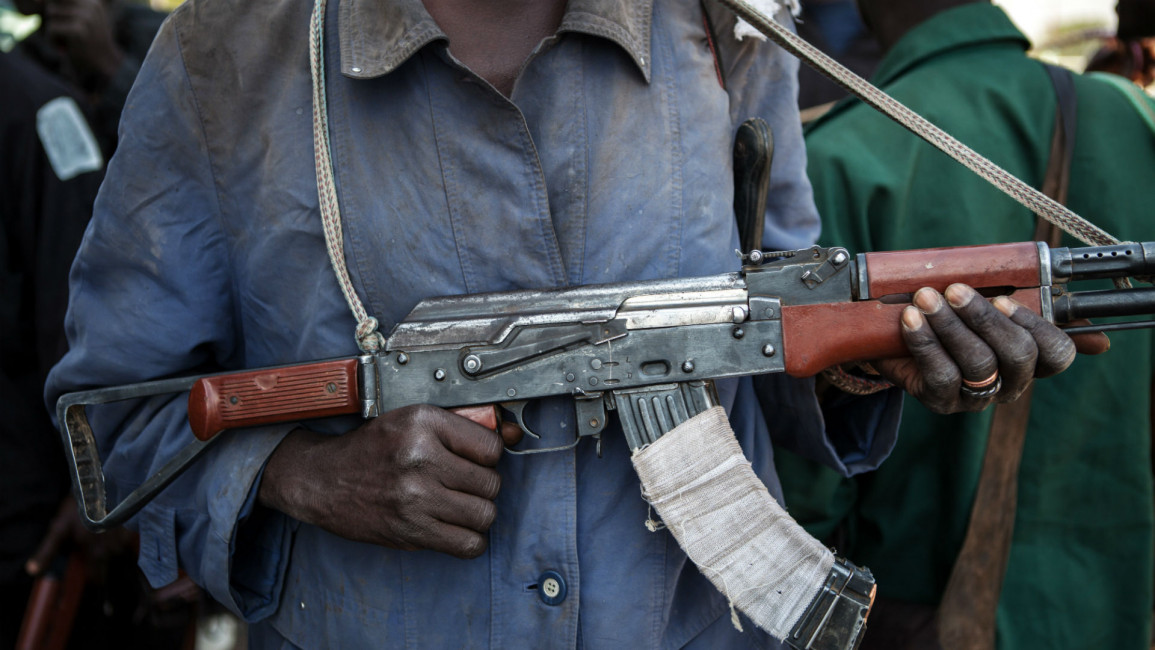Nigeria claims major Boko Haram plot thwarted, as army dismisses criticism
The country's intelligence agency, the Department of State Services (DSS), said it had disrupted "sinister plans... to cause mayhem and destruction" during celebrations for the recent Eid al-Adha festival.
"The plan was to conduct gun attacks and suicide bombing on selected targets in the Federal Capital Territory, Abuja, Kano, Kaduna, Niger, Bauchi, Yobe and Borno states," said DSS spokesman Tony Opuiyo.
The alleged mastermind of the planned attacks, identified as Husseini Mai-Tangaran, was arrested in the northern city of Kano on August 31, leading to the detention of a number of others, he added.
Mai-Tangaran was described as a "well-known" commander in the Abu Mus'ab al-Barnawi-led faction of Boko Haram, which is supported by the Islamic State group in Syria and Iraq.
The DSS also said he was behind the November 2014 attacks on the Kano central mosque, which killed at least 120.
Nigeria's security services often claim to have foiled major Boko Haram plots and made arrests but announcement of charges, prosecutions and convictions have been rare.
The most high-profile case currently in court is that of Khalid al-Barnawi, a leader of the moribund Boko Haram offshoot, Ansaru, on charges of abducting and murdering a number of foreign workers.
Spate of attacks
However, revelations that Boko Haram may have been planning high-profile attacks during the Islamic festival could be taken as a sign of renewed confidence among the Islamist militants.
The Abu Mus'ab al-Barnawi faction has promised to hit government and military targets rather than civilians, who have borne the brunt of the violence since 2009.
Nigeria's military and government maintain Boko Haram has become a spent force after more than two years of sustained counter-insurgency operations, including with neighbouring Cameroon, Chad and Niger.
But continued attacks, particularly in hard-to-reach rural areas, suggest claims of outright victory are premature.
On Friday, at least seven people were killed when jihadists fired a rocket-propelled grenade at a camp for some 80,000 people displaced by the conflict in the trading hub of Ngala.
The camp in Ngala was set up in January last year after the return of thousands of Nigerian refugees from Cameroon, where they had fled the fighting.
Also on Friday, two other people were killed when two women strapped with explosives blew up outside the Muna Garage camp for the displaced, on the outskirts of the Borno state capital, Maiduguri.
Smear campaign
Amnesty International last week said Boko Haram attacks since April had killed nearly 400 people in Nigeria and Cameroon - double the figure of the previous five months.
But Nigerian army spokesman Brigadier General Sani Usman dismissed claims of a resurgence in violence as part of a smear campaign against the military.
In a clear reference to Amnesty, Usman said statistics claiming a Boko Haram resurgence were "concocted".
"The facts on the ground speak otherwise" and that Nigeria's "victory over the Boko Haram terrorists" was "acknowledged the world over", he said.
Suggestions of security lapses or failings were "most unkind and uncharitable", he said in an emailed statement.



